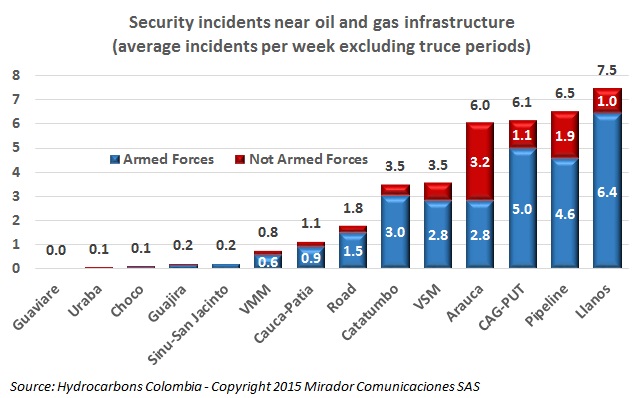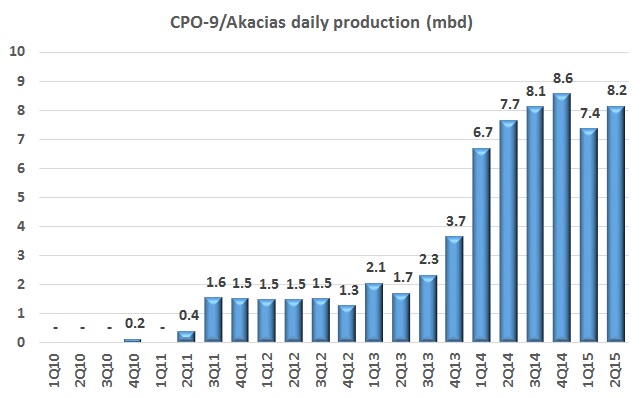The Colombian Association of Oil Engineers (ACIPET) has designated Carlos Rodríguez as its new executive director, replacing Carlos Alberto Leal who held the position for the last five months during the search for a permanent replacement.

We attended yesterday’s session to present the long-anticipated McKinsey study on Colombia’s competitiveness and the MinMinas/ANH initiatives to address the issues that study uncovered. Readers can find a separate article on the MinMinas press-release. Here is our extended ‘Bottom-Line’.
Led by the Ministry of Mines and Energy (MinMinas) and the National Hydrocarbons Agency (ANH) the central government has presented a plan to keep Colombia’s hydrocarbons sector competitive, overhaul how it promotes new blocks, and aims to receive US$20B in investment by 2030 with production reaching 1.3Mboed.
The fall in oil prices has had dire consequences for the oil services industry, and regional leaders are looking at how services firms of different countries can band together to weather the current price scenario.
The USO said that Ecopetrol’s (NYSE:EC) policies, which include farm-out agreements for the NOC’s smaller fields, have already negatively affected the Casanare department.
In a country full of spectacular beauty, La Macarena takes the word ‘spectacular’ to another level. Caño Cristales has to be one of the wonders of the natural world and its remote location in Colombia’s Serranía La Macarena National Park keeps it protected from commercial development.

Whatever one’s view of last Thursday’s historic handshake between Colombian President Juan Manuel Santos and Farc leader alias ‘Timochenko’, peace – at least with the Farc – looks closer today than it has for decades.

The process to clear the way for Ecopetrol (NYSE:EC) to start commercial production work for its CPO-09 block is slowly moving forward, while challenges persist for heavy crude production and its potential in Colombia.
Ecopetrol (NYSE:EC) environment chief for Middle Magdalena and Catatumbo Julia Celina Angulo Díaz said that the NOC will be recognized by the United Nations Development Program in December for its social work in the region.
More than three years after the implementation of the General Royalty System (SGR) complaints persist and observers say that the new system puts small municipalities at a disadvantage, even if it has brought about more transparency and control.